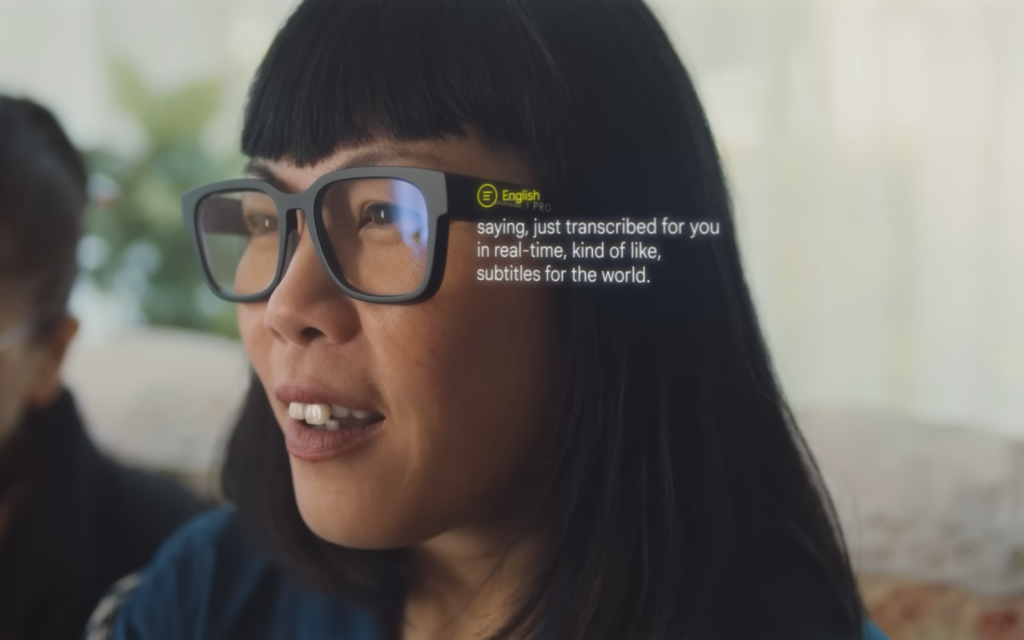Google recently held its annual I/O presentation and, this year, there was a lot to take in. The Pixel 6a, Pixel Watch, Pixel Bids Pro, Pixel 7 and 7 Pro, and a new Pixel Tablet, to name all but one. Then, right at the end of the presentation, the company revealed something we don’t think many people were expecting – AR glasses.
The headline feature for these was the ability to view an automatically translated and transcribed feed of text in real-time, taken from another person’s speech. Of all the various applications of AR that we’ve seen, this one actually seems like it could be useful.
Google’s got its eye on you
Unfortunately, the company didn’t mention when we might see these, how much they might cost, or what the actual feed of text would look like. In the video, we did see a simulated view of what it might look like to wear them but we’ll need to wait for a proper demo before we get excited.

Google also only had the video to show, and no physical products, so we don’t know how someone would interact with them, or whether or not you can switch that function off.
Read More: Xiaomi is working on smart glasses – where have we seen this before?
This is obviously still early days so Google is probably still working out the finer details. Like, tweaking the new and improved ways these will violate our privacy so Google can get new forms of personal data. But our phones already do that. So no big deal, right?
Speaking of phones, Google might already be testing features planned for the AR Glasses on mobiles. In April, the company announced a new feature called ‘multisearch’. It allows users to search using text and images simultaneously via Google Lens. Lens is the company’s image recognition technology. Open it up, point it at a flower, and Lens will tell you what kind of flower it is.
Speak up, my glasses can’t hear you

Also noteworthy is that if you’re going to use the still-unnamed AR glasses (seriously Google, not even a code name?) to communicate with someone that speaks another language, you’ll each need a pair. Unless one of you put in more effort and actually just learns another language. But, for the deaf and hearing impaired, and without trying to sound too dramatic, these could eradicate deafness as we know it.
Of all the companies with their fingers in the AR pie, Google is the most likely to do it right. It already owns all the pieces it would need, like image processing, translation, and everyone’s information. The combination might well turn out the perfect pair of AR glasses. Once the company absorbs any missing pieces it needs, anyway.
